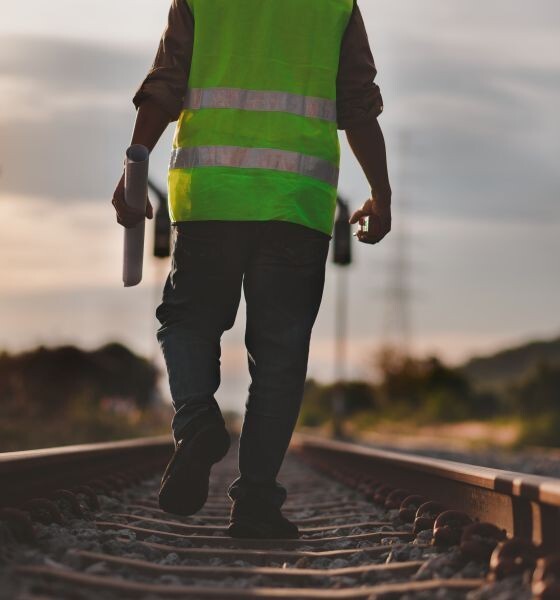Rail networks are the backbone of Australia’s economy, moving freight and people across long distances every day. But with extreme weather events becoming more frequent and infrastructure ageing, rail operators face rising risks which cause delays, derailments, and costly damage, which are no longer rare; they’re a growing reality.

That’s where RailAWARE comes in.
Developed by EWN, RailAWARE is a dedicated package of weather intelligence and monitoring solutions designed specifically for the rail industry. By combining advanced forecasting, real-time alerts, and on-the-ground monitoring, RailAWARE empowers operators to take proactive action before, during, and after severe weather hits.
What’s in the RailAWARE Package?
RailAWARE brings together multiple solutions into one integrated system:
-
Severe Weather Alerts for Track Sections – Targeted warnings when storms, damaging winds, or intense heat threaten your network.
-
FloodAWARE – High-resolution flood intelligence to anticipate inundation, protect assets, and reduce derailment risk.
-
Radar-Derived Rainfall – Virtual gauges that detect rainfall where no physical gauges exist, filling data gaps across remote regions.
- Tropical Cyclone Services – Forecasting and tracking of cyclone systems, with customised alerts for rail corridors, depots, and operational hubs.
-
Tomorrow.io – Advanced predictive weather models tailored to rail operations, helping you stay ahead of disruptive events.
-
Observational Rainfall Gauges & Culvert Monitoring – On-the-ground data streams that provide live intelligence on water levels and flow rates.
Real-world data illustrates just how critical a tool like RailAWARE is becoming:, with Australia’s rail network is increasingly at risk due to extreme weather.
-
-
Severe flooding and storm events in recent months has caused major disruption: five Australian states and territories were hit by severe thunderstorms and flash flooding, leading to abandoned vehicles and numerous train service cancellations, particularly in Queensland, Sydney, and Canberra
-
In Far North Queensland in December 2024, over 300 mm of rainfall in 48 hours triggered evacuations, overwhelmed the Bruce Highway, and led to rail track inundation and service interruptions
-
Ex-Tropical Cyclone Alfred triggered widespread flooding across Queensland’s rail network. Queensland Rail had to assess impacts across 152 stations, over 850 km of track, and nearly 900 km of overhead and signalling infrastructure. Some lines remained closed, with crews working hard to implement reduced timetables and restore operations
- In March 2025, Australia experienced its first cyclone to affect southeast Queensland in over 50 years in Cyclone Alfred, highlighting that cyclones can escalate beyond tropical zones
- Cyclone Tessi (2000), though compact, dropped a record 423 mm of rain in 24 hours in Townsville. One Queensland Rail worker suffered an electrical shock during post-storm cleanup

- Track washaways are common during intense rain events, like this track in Mt Isa. (Image credit: Queensland Rail)
RailAWARE is trusted because it delivers actionable intelligence and not just raw data. With RailAWARE, operators can:
-
Prevent delays and damage by knowing what’s coming and where.
-
Protect crews and cargo with precise, location-based alerts.
-
Strengthen resilience by embedding weather intelligence into daily operations.
-
Target information to the right teams, reducing noise and enabling faster decisions.
-
Save time and costs by avoiding unnecessary shutdowns and focusing on real risks.
In 2024, the Australian Government committed more than $1 billion to improving the resilience of the national rail network. But true resilience doesn’t come from infrastructure alone, it requires intelligent systems like RailAWARE that keep operators informed and prepared.
By integrating severe weather intelligence directly into your operations, RailAWARE helps rail operators minimise disruption, protect assets, and keep trains moving safely, no matter the season.
If you'd like to learn more, speak to our rail specialists today.